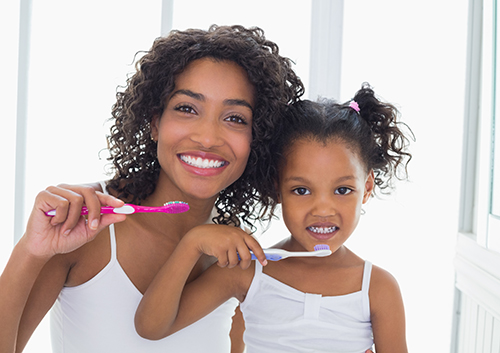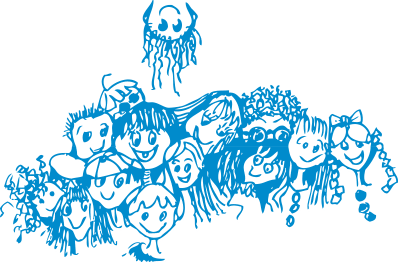April 27th, 2016

At our office, Dr. Stephen Korson and our team do all that we can to make sure that your experience with us is the best it can possibly be. However, there’s an important role you play in this as well: leaving us reviews and feedback.
Whether there is something you’d like us to improve upon, or you’d just like to express your thanks for a job well done, your feedback is essential to our practice’s success.
We look forward to hearing from you, and are excited to hear what you thought of your most recent visit at our Summit, NJ office.
April 20th, 2016

Come say hello twice a year. The American Dental Association says two times is the charm. Multiple visits a year lets us keep an eye out for any developing issues. It’s important to remember that this goes for the whole family. Children over one year old should be seeing Dr. Stephen Korson!
Stay fresh. At Summit Pediatric Dentistry, we have a virtually unlimited stock of toothbrushes and floss, which means you have no excuse to be using a sad, ineffective toothbrush. As soon as bristles begin to fray, pick up a new one or stop by our Summit, NJ office and we’ll replace yours. On average, you should be opening a new one every two to three months.
For goodness sake, floss! Flossing is an efficient way to keep your whole mouth healthy. It not only protects your teeth by removing aggregated plaque, it keeps your gums happy, too.
And brush. Practicing regular healthy habits is essential to keeping your mouth—and us—happy! When it comes to brushing that means two minutes, two times a day. If your kids need some encouragement, try making a calendar or playing a song like this.
Tell a friend. One way you can help us is by spreading the love. Tell your friends about what a good thing we’ve got going here. The more the merrier. And the healthier.
April 13th, 2016

Two studies – one conducted in Washington State, and whose findings were published in the Journal of Pediatric Dentistry in 2004, and another conducted in Madrid, Spain, and whose findings were reported in 2012 in Science Daily, reinforce earlier findings that show a direct relationship between parental dental fear and that of their children.
The Washington study looked at dental fear among 421 children whose ages ranged from 0.8 to 12.8 years. The children were all patients at 21 different private pediatric dental practices in Western Washington State. The Spanish study looked at 183 children between the ages of seven and 12, and their parents in Madrid.
The Washington study used the Dental Sub-scale of the Child Fear Survey Schedule. The survey responses came from either parents, or other parties charged with taking care of the children. The people responsible for each child filled out the survey, which consisted of 15 questions to which answers were given based on the child’s level of fear. The scale used was one to five, with one meaning the child wasn’t afraid at all, and five indicating the child was terrified. The maximum possible points (based on the greatest fear) was 75.
Spanish researchers found that like past studies, there is a direct connection between parental dental fear levels and those of their kids. The most important new discovery from the study conducted in Madrid, was that the more anxiety and fear a father has of going to the dentist, the higher the fear levels among the other family members.
Parents, but especially fathers, who suffer from fear of going to the dentist and fear of dental procedures in general pass those fears on to every member of the family. While parents may not feel like they have control over those fears, the best way to help your child understand the importance of going to the dentist is by not expressing your fears in front of them – or around the rest of the family.
Dr. Stephen Korson and our team understand that some patients are more fearful than others when it comes to visitingour Summit, NJ office. We work hard to make our practice as comfortable for our patients, both children and adults.
April 6th, 2016

According to the American Academy of Pediatric Dentistry, your child should visit a dentist, like Dr. Stephen Korson, when his or her first tooth pops through the gum, or by time they are one year old.
Children do not always want to brush their teeth. In fact, the average child has three cavities by the time they reach their third birthday. However, if you make brushing fun for them, they will look forward to it, and develop a lifelong habit of good oral hygiene.
How to Make Brushing Fun
- Let them pick out their own toothbrush, like one with their favorite cartoon character.
- Allow your child to choose their own special toothpaste, as long as it adheres to AAPD guidelines for safety.
- Brush to a fun song that is two to three minutes long. When the music stops they are done brushing.
- Brush your teeth with them. Make it a family affair!
- Toddlers may be afraid of having their teeth brushed or brushing them by themselves. Allow them watch as you brush your teeth; this will help them to see that brushing their own teeth will not hurt them.
- Reward systems are great incentives for children, just don’t overdo it. You’re trying to instill good brushing habits, not simply reward them for something they need to do.
- Try an app on your phone; you’ll be surprised how many there are and how much fun your child will have using them.
- It’s important to make sure every tooth gets brushed, so as you child brushes their teeth, count them. Then when they are finished ask them how many teeth they have. You can switch it up a little by giving each tooth a silly name or make up a short rhyme about each tooth as your child brushes.
- Use educational tools, such as the movie “The Adventures of Timmy the Tooth.”
- Read books to your child about brushing their teeth and good oral hygiene.
All you need is a little imagination to help your child learn to love brushing their teeth!







